
Harar: The Enchanted Walled City of Ethiopia
Nestled in the eastern part of Ethiopia, Harar stands as a testament to centuries of cultural and historical richness. Known as the 'City of Saints,' Harar boasts a UNESCO World Heritage status, offering an immersive journey through its labyrinthine streets, vibrant markets, and ancient walls. The city's unique blend of Islamic and Ethiopian heritage is evident in the 82 mosques and over 100 shrines that adorn its landscape, making it a spiritual haven for many. A walk through Harar's old town, Jegol, feels like stepping back in time. The narrow alleyways, colorful buildings, and bustling bazaars invite visitors to explore the local culture and traditions. Don't miss the chance to visit the Harar Museum, which offers fascinating insights into the city's storied past, or the renowned Arthur Rimbaud House, dedicated to the French poet who lived here in the late 19th century. One of Harar's most unique and thrilling experiences is the nightly hyena feeding ritual. For generations, local 'hyena men' have fed these wild animals just outside the city walls, a tradition that continues to this day. This extraordinary interaction between man and beast is a must-see for any visitor, providing a glimpse into the city's deep-rooted customs and practices.
Local tips in Harar
- Visit in the dry season (October to March) for the best weather.
- Wear comfortable walking shoes; the old town's streets are narrow and often uneven.
- Hire a local guide to fully appreciate the history and stories behind the city's landmarks.
- Try the local Harari coffee, known for its unique flavor.
- Respect local customs, especially when visiting religious sites.
- Carry cash, as credit cards are not widely accepted.
Harar: The Enchanted Walled City of Ethiopia
Nestled in the eastern part of Ethiopia, Harar stands as a testament to centuries of cultural and historical richness. Known as the 'City of Saints,' Harar boasts a UNESCO World Heritage status, offering an immersive journey through its labyrinthine streets, vibrant markets, and ancient walls. The city's unique blend of Islamic and Ethiopian heritage is evident in the 82 mosques and over 100 shrines that adorn its landscape, making it a spiritual haven for many. A walk through Harar's old town, Jegol, feels like stepping back in time. The narrow alleyways, colorful buildings, and bustling bazaars invite visitors to explore the local culture and traditions. Don't miss the chance to visit the Harar Museum, which offers fascinating insights into the city's storied past, or the renowned Arthur Rimbaud House, dedicated to the French poet who lived here in the late 19th century. One of Harar's most unique and thrilling experiences is the nightly hyena feeding ritual. For generations, local 'hyena men' have fed these wild animals just outside the city walls, a tradition that continues to this day. This extraordinary interaction between man and beast is a must-see for any visitor, providing a glimpse into the city's deep-rooted customs and practices.
When is the best time to go to Harar?
Iconic landmarks you can’t miss
Hyena Feeding Site
Discover the captivating tradition of hyena feeding in Harar, where wildlife encounters meet local culture in an unforgettable evening experience.
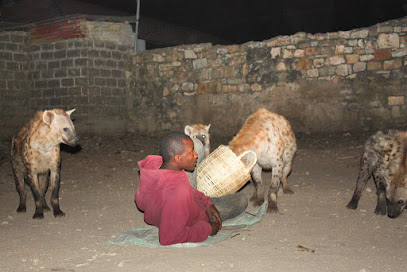
Rimbaud's House & Museum
Immerse yourself in the poetic legacy of Arthur Rimbaud at Rimbaud's House & Museum in Harar, a cultural gem celebrating literature and history.
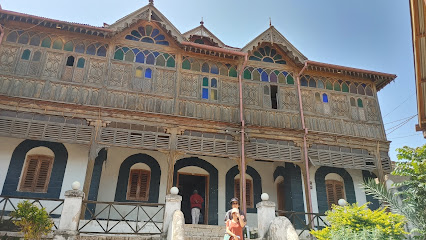
Sumeya Hotel
Discover the comfort of Sumeya Hotel in Harar, Ethiopia, perfectly blending local culture with modern amenities for an unforgettable stay.

Harar City
Explore Harar City, a UNESCO World Heritage site known for its rich history, unique architecture, and vibrant local culture in Ethiopia.
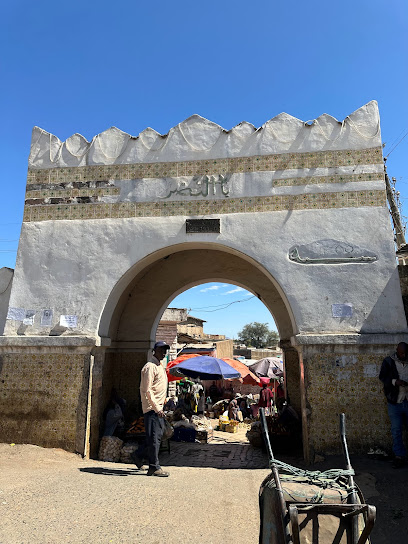
Harar jegol
Experience the authentic charm of Harar Jegol, a UNESCO World Heritage site, steeped in rich history and vibrant culture, perfect for travelers seeking a unique adventure.
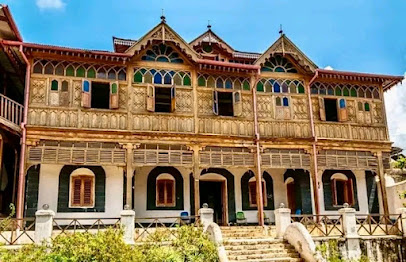
Anisa Guesthouse
Experience the warmth of Ethiopian hospitality at Anisa Guesthouse, your cozy retreat in the historic city of Harar, rich in culture and tradition.

Harar ber
Experience the rich history and unique architecture of Harar Ber, a captivating historical landmark in Ethiopia's ancient city of Harar.
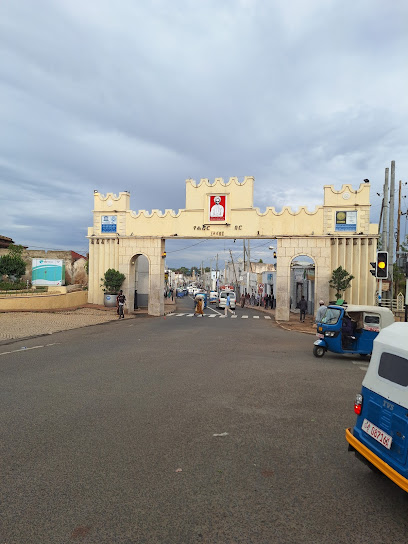
Din Agobara Mosque
Discover the architectural splendor and spiritual tranquility of Din Agobara Mosque in Harar, a gem of Islamic heritage in Ethiopia.
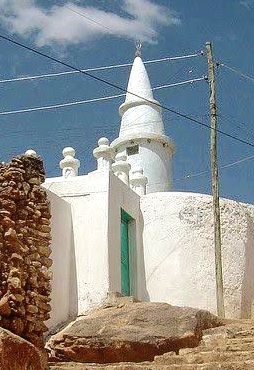
harar Ethiopia
Discover the rich culture and history of Harar, Ethiopia, while enjoying a cozy bed and breakfast retreat that offers local flavors and warm hospitality.
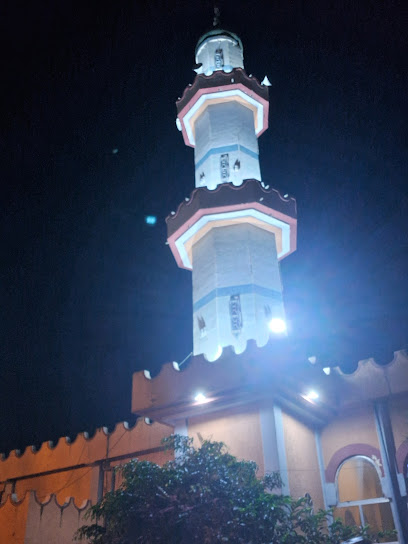
Ras Makonnen Statue
Discover the rich cultural heritage at Ras Makonnen Statue in Harar, a historic tribute to Ethiopia's legacy and an iconic symbol of pride.

Imam Ahmed Square
Explore the vibrant Imam Ahmed Square in Harar, Ethiopia, a cultural hub teeming with local markets, music, and the rich tradition of Ethiopian coffee.

Khatibin Square
Explore Khatibin Square, a vibrant town square in Ethiopia that embodies the lively culture and rich traditions of the region.

Visit Harar in Ethiopia
Explore the captivating city of Harar in Ethiopia, where rich history meets vibrant culture amidst stunning landscapes.

Aboker Square
Discover the vibrant culture and history of Harar at Aboker Square, a lively town square that showcases the heart of Ethiopian life.

Ethiopia
Discover Harar, Ethiopia's mystical city steeped in history, vibrant markets, and spiritual significance, a must-visit for every traveler seeking adventure.
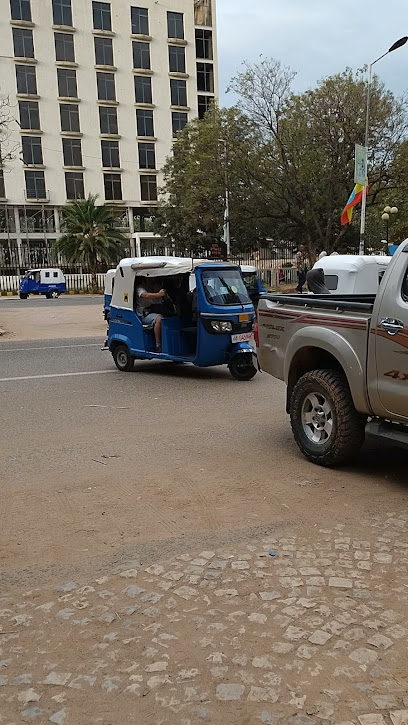
Unmissable attractions to see
Hyena Feeding Site
Experience the remarkable tradition of hyena feeding in Harar, Ethiopia, where wildlife and culture intertwine in a captivating evening spectacle.
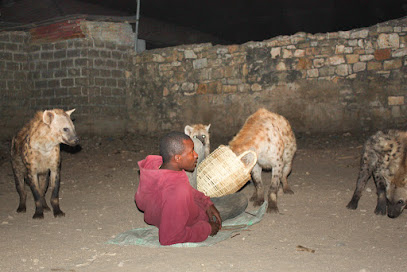
Rimbaud's House & Museum
Discover the legacy of Arthur Rimbaud at his House & Museum in Harar, a cultural gem showcasing the poet's life and the rich heritage of Ethiopia.
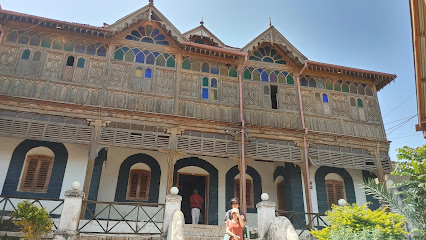
Asmadin Gate
Discover the historical significance of Asmadin Gate, a stunning landmark in Harar, Ethiopia, and immerse yourself in the city's rich cultural heritage.
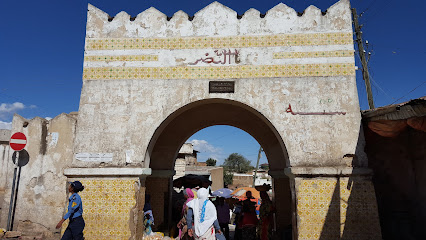
Harar jegol
Explore Harar Jegol, Ethiopia's historic walled city, where vibrant culture and rich heritage await every traveler.
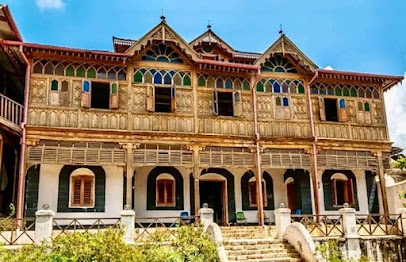
Sherif Private Musuem
Explore the rich cultural heritage of Ethiopia at Sherif Private Museum, a hidden gem in the heart of Harar filled with captivating artifacts and stories.
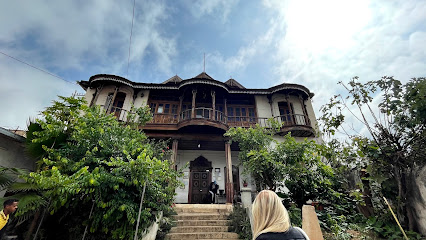
Haroo Haramayaa
Explore Haroo Haramayaa, a captivating Ethiopian tourist attraction blending rich culture with stunning natural landscapes for an unforgettable experience.
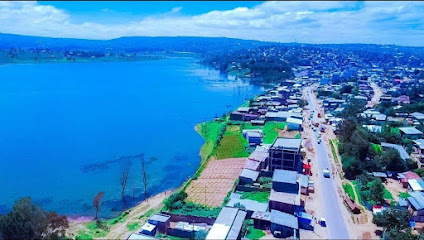
Aw Abdal Mosque
Explore the Aw Abdal Mosque in Harar, Ethiopia, where spirituality meets stunning architecture in a vibrant cultural setting.
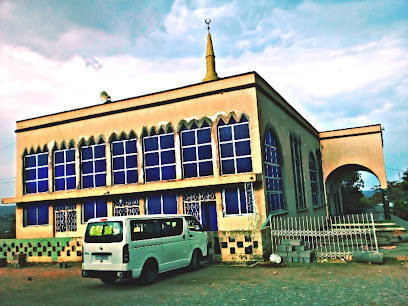
Ras Makonnen Statue
Explore the Ras Makonnen Statue in Harar, a significant tribute to Ethiopia's rich heritage and history, surrounded by vibrant local culture.
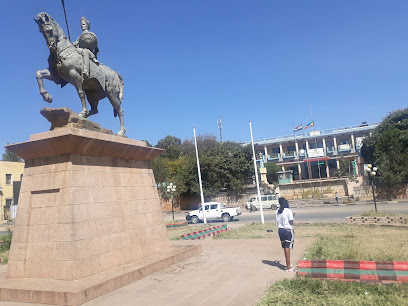
Green-Land
Experience the natural beauty and tranquility of Green-Land Park in Harar, a perfect escape for nature lovers and peace seekers.
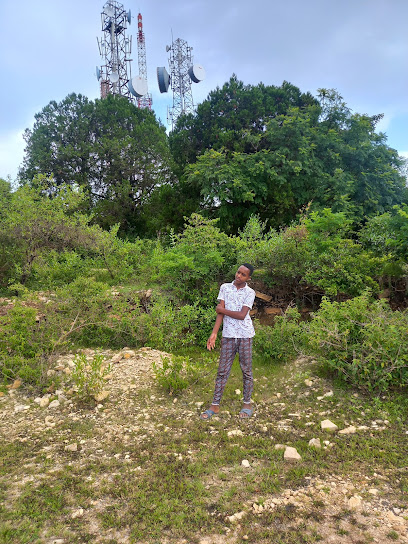
ቁንዱዶ ተራራ/Qundudo Mountain
Discover the breathtaking beauty of Qundudo Mountain in Harar, a serene escape perfect for adventure seekers and nature lovers alike.
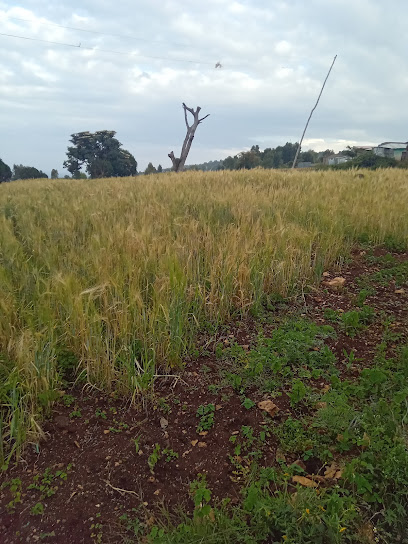
Haramya lake
Discover the tranquil beauty of Haramya Lake, an idyllic park perfect for relaxing walks, family picnics, and captivating sunsets in Ethiopia.
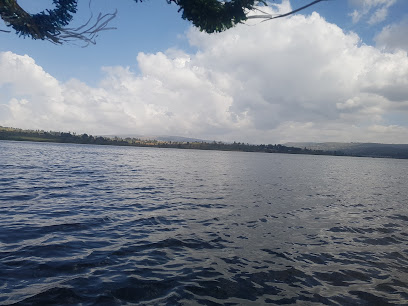
Raaciga(somali restant)
Experience the vibrant flavors of Somalia at Raaciga, a culinary gem in Babile, Ethiopia, offering authentic dishes and warm hospitality.

Harari National Museum
Discover the rich cultural heritage of Ethiopia at the Harari National Museum, where history and tradition come alive in Harar.

Amir uga
Explore the vibrant streets and rich history of Amir Uga, a captivating tourist attraction in the heart of Harar, Ethiopia.
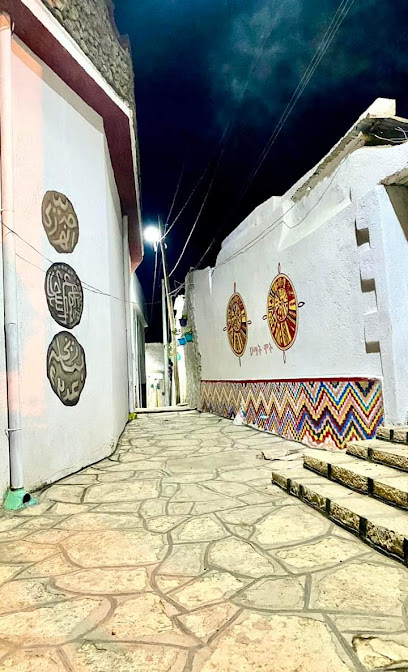
Ganda Alisho
Discover the tranquil beauty of Ganda Alisho, a stunning garden oasis in Harar, Ethiopia, perfect for relaxation and nature appreciation.

Essential places to dine
Fresh touch Restaurant
Experience authentic Ethiopian cuisine at Fresh Touch Restaurant in Harar – where local flavors meet warm hospitality.
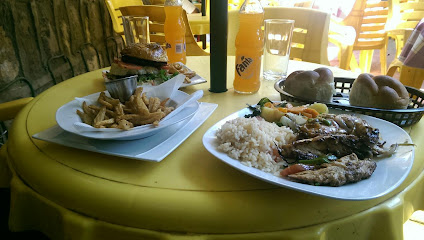
Hirut Restaurant
Discover authentic Ethiopian cuisine at Hirut Restaurant in Harar – where tradition meets flavor in a warm setting.
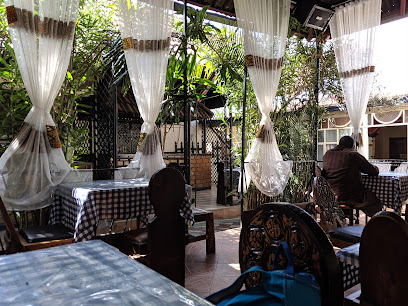
AWADAYE RESTAURANT(ABDI YONIS)
Experience authentic Ethiopian flavors at Awadaye Restaurant in Harar – a must-visit culinary destination for tourists.
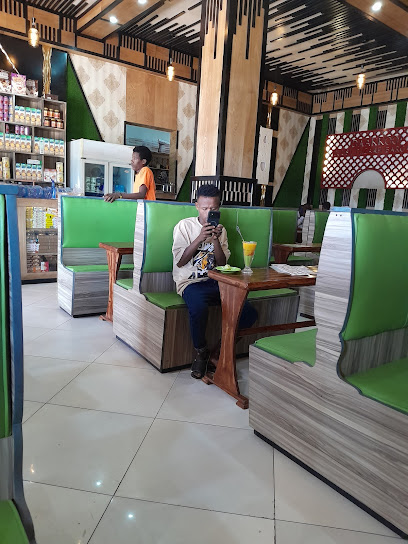
GENET KITFO
Experience authentic Ethiopian cuisine at Genet Kitfo in Harar – a culinary treasure offering delicious flavors and cultural richness.
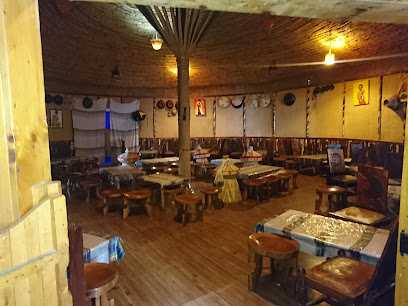
Desalegn Kitfo
Experience authentic Ethiopian cuisine at Desalegn Kitfo in Harar—where every bite tells a story.
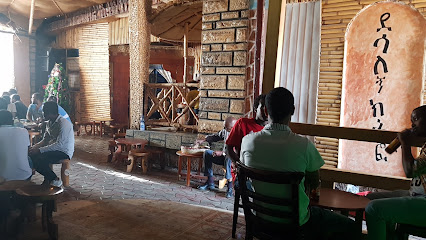
Arab Ali Hotel
Experience authentic Ethiopian cuisine at Arab Ali Hotel in Harar - where every meal tells a story.

Nati Cafe & Restaurant
Discover authentic Ethiopian cuisine at Nati Cafe & Restaurant in Harar – where every meal tells a story.
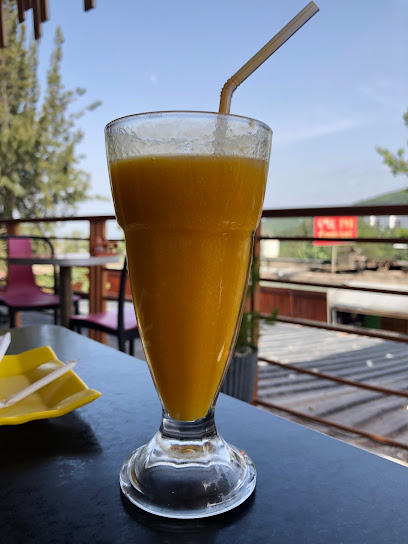
Betemengist
Experience authentic Ethiopian cuisine at Betemengist in Harar - where every meal tells a story.

Tasty Cafe
Discover Tasty Cafe in Harar: where local flavors meet international cuisine in a cozy setting perfect for every traveler.
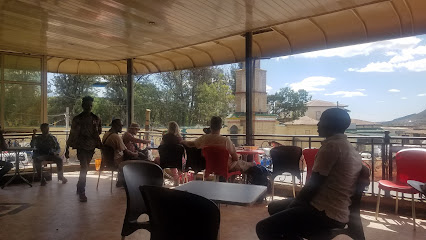
Hassangey
Experience authentic Ethiopian cuisine at Hassangey in Harar—where every dish tells a story rich in flavor and tradition.
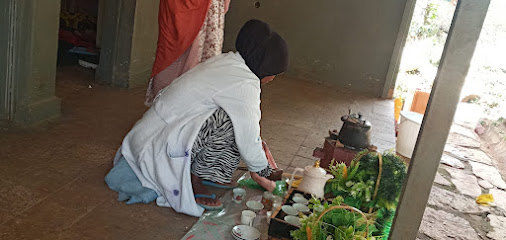
Asefa Restaurant
Discover authentic Ethiopian flavors at Asefa Restaurant in Harar - where every meal tells a story of tradition and warmth.
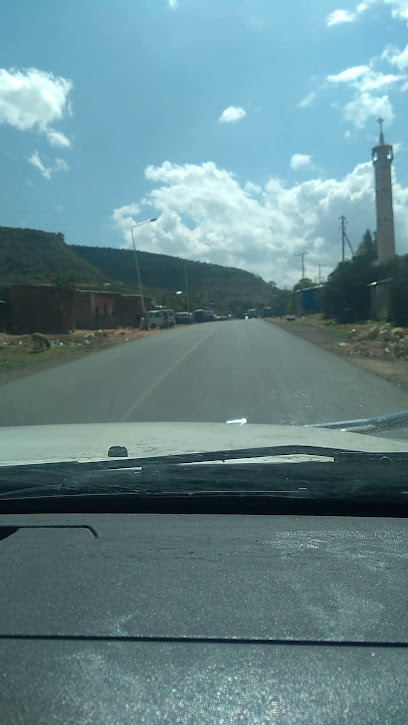
Sharif Resturant
Experience authentic Halal Ethiopian cuisine at Sharif Restaurant in Harar – a culinary treasure waiting to be explored.
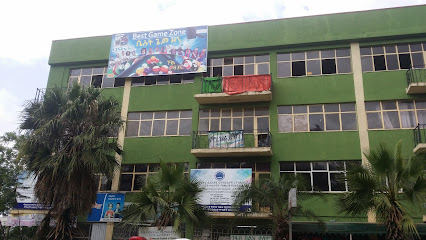
Student Caffe
Experience authentic Ethiopian coffee and delightful local cuisine at Student Caffe in Harar - a cozy haven for tourists.
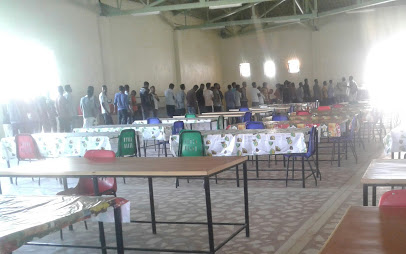
Jugal Cafe&Fast Food
Experience authentic Ethiopian flavors at Jugal Cafe & Fast Food in Harar – where tradition meets taste.
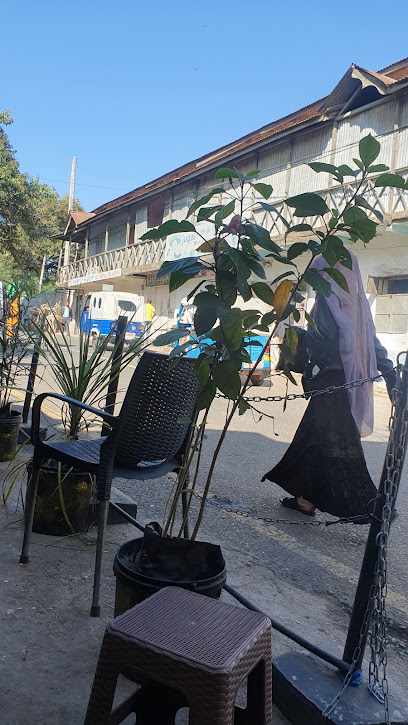
Wedemamachoch Hotel
Experience authentic Ethiopian cuisine at Wedemamachoch Hotel in Harar - where tradition meets modern hospitality.
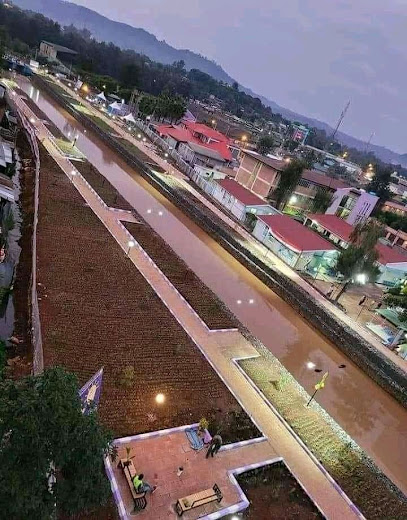
Markets, malls and hidden boutiques
Medob International
Explore Medob International in Harar, Ethiopia - your ultimate shopping destination blending local charm with modern convenience.

Family shop
Explore Harar's Family Shop: A treasure trove of local crafts and authentic souvenirs that reflect the rich culture of Ethiopia.

ታደለች Home
Dive into local culture and flavors at ታደለች Home, a vibrant grocery store in the heart of Harar, Ethiopia, perfect for food lovers.

HARER
Discover Harer, Ethiopia: A vibrant city where ancient traditions meet modern artistry in a tapestry of culture and creativity.
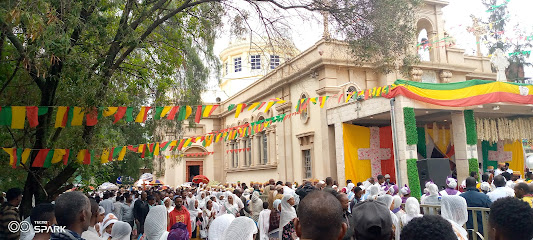
MEKA MOBILE AN ELECTRONICS
Experience cutting-edge technology and local hospitality at MEKA MOBILE in Harar's vibrant Garad Shopping Mall, a must-visit for electronics enthusiasts.

Oris printing & brand gift shop
Explore unique Ethiopian souvenirs at Oris Printing & Brand Gift Shop in Harar, where culture meets creativity in every handcrafted item.
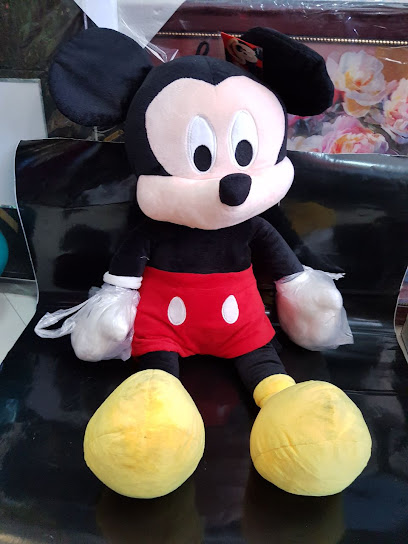
KBK electronics
Explore cutting-edge technology at KBK Electronics in Harar, a shopper's paradise for the latest gadgets and devices in Ethiopia.

Harari
Explore the rich history, vibrant markets, and unique culture of Harari, a UNESCO World Heritage site in Ethiopia, where every corner tells a story.

ደጋሃራራ
Experience the beauty of Ethiopian craftsmanship at ደጋሃራራ, a must-visit home goods store in Harar for unique souvenirs and local culture.
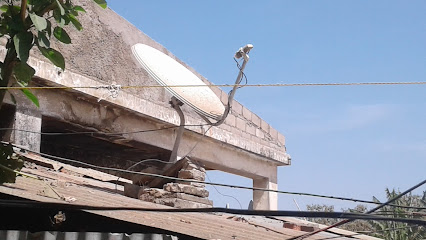
Shash Shopping Center
Explore Shash Shopping Center in Harar for a unique shopping experience, local culture, and delicious Ethiopian cuisine.

Muntaz Trading
Explore Muntaz Trading in Harar - Your gateway to local crafts, international shopping, and authentic Ethiopian cuisine.
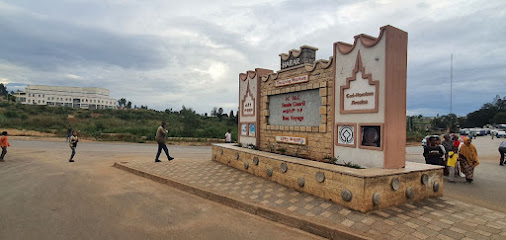
Muraad
Explore the vibrant culture of Harar through unique local products at Muraad, where shopping meets tradition and artistry.

Hilina Shop
Experience the vibrant culture of Harar at Hilina Shop, your destination for unique local crafts and delicious traditional snacks.
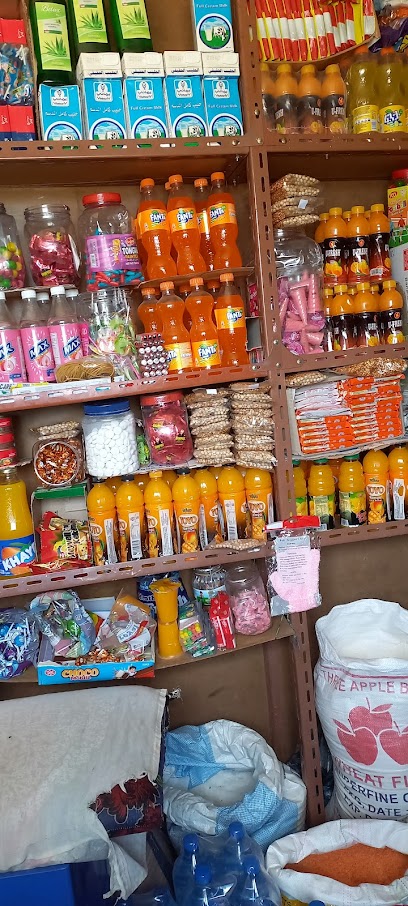
Milex haberdashery ( men's Clothing store)/ ሚሌክስ የወንዶች ልብስ መሸጫ
Explore Milex Haberdashery in Harar for stylish men's clothing that embodies the essence of Ethiopian culture and modern fashion.

NAIF DESIGN
Explore the vibrant fashion of Harar at Naif Design, where tradition meets modernity in unique clothing and accessories.

Essential bars & hidden hideouts
Fresh touch Restaurant
Experience the rich flavors of Ethiopia at Fresh Touch Restaurant in Harar, where local delicacies meet warm hospitality for an unforgettable dining experience.
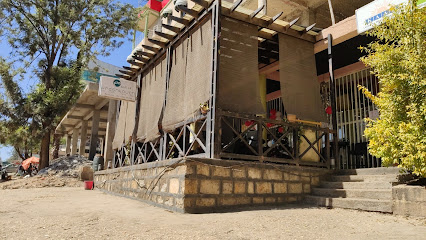
Hirut Restaurant
Discover the authentic flavors of Ethiopia at Hirut Restaurant in Harar, a culinary gem for every food lover.
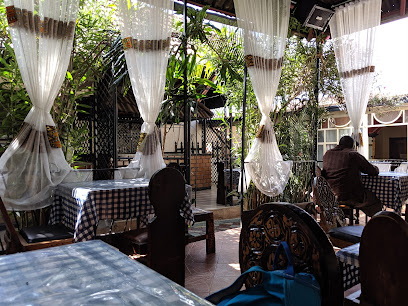
GENET KITFO
Discover the authentic taste of Ethiopia at Genet Kitfo, Harar's premier restaurant for traditional cuisine and exceptional hospitality.
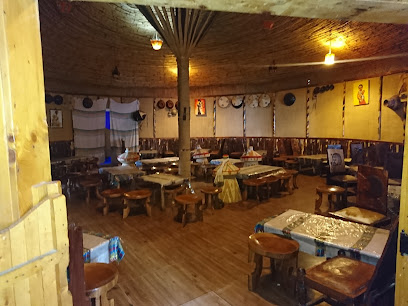
Harar Brewery S.C.
Experience the essence of Ethiopian brewing at Harar Brewery S.C., where local flavors and rich traditions come together.
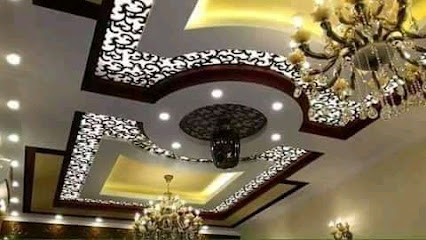
Ethiopia Bar & Grocery
Experience the vibrant nightlife of Harar at Ethiopia Bar & Grocery, where local flavors and culture come alive.

Kare awud bar & restaurant
Experience authentic Ethiopian dining at Kare Awud Bar & Restaurant in Harar, where local flavors and warm hospitality await every visitor.
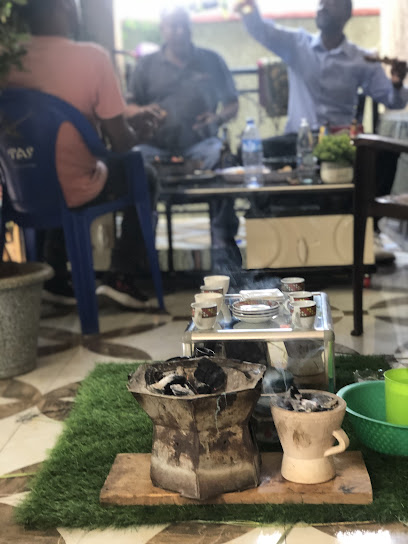
Emebet &cheru holdings
Discover the heart of Harar at Emebet &cheru Holdings, where local flavors and vibrant culture come together in a cozy bar atmosphere.

Birr
Discover Birr, the vibrant gay night club in Dadar Huffe, where music, dance, and inclusivity create unforgettable nightlife experiences.
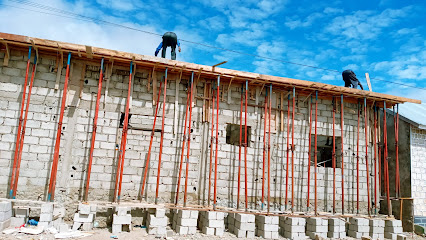
Desta Bar & Restaurant
Experience the vibrant nightlife of Harar at Desta Bar & Restaurant, where local flavors and a welcoming atmosphere await.
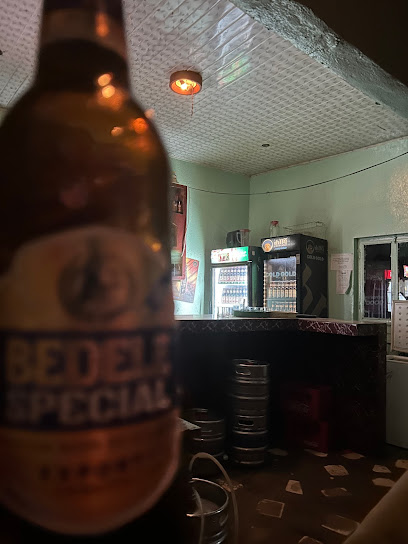
Mulu Pub
Discover Mulu Pub in Harar, where vibrant atmosphere meets authentic Ethiopian hospitality, perfect for tourists seeking a local experience.

Warka Grocery
Experience the authentic flavors and vibrant culture of Harar at Warka Grocery, a local bar that welcomes all visitors with warmth.

GENET KITFI QUTER 2
Unwind in Harar's vibrant cultural hub at Genet Kitfi Quter 2, where refreshing drinks and local charm await.
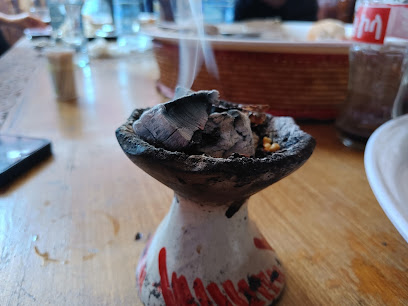
Etenesh Hotel
Experience the vibrant nightlife and warm hospitality at Etenesh Hotel, a cultural bar in the heart of Harar, Ethiopia.

Hanaan restaurant
Discover authentic Ethiopian cuisine at Hanaan Restaurant in Harar, where traditional flavors meet warm hospitality.

Ebetel bar
Experience the vibrant nightlife of Harar at Ebetel Bar, where local charm meets an eclectic atmosphere in the heart of Jegol.

Travel experiences inspired by this city
Explore more travel diariesLocal Phrases
-
- HelloSelam
[səˈlɑm] - GoodbyeTena yistilign
[ˈtɛnɑ jɪsˈtiˌlɪn] - YesEyi
[ˈɛjɪ] - NoAy
[ˈaɪ] - Please/You're welcomeMin yishalal
[mɪn jɪˈʃɑlɑl] - Thank youAmeseginalehu
[ɑmɛˈsɛgɪnɑlɛhu] - Excuse me/SorryYikirta
[jiˈkɪrtɑ] - How are you?Endet neh
[ˈɛndɛt nɛh] - Fine. And you?Dehna neh. Aydelem?
[ˈdɛhnɑ nɛh. aɪˈdɛlɛm] - Do you speak English?Inglizé yemesayal?
[ɪŋglɪˈzɛ jɛmɛˈsɑjɑl] - I don't understandAlfielem
[ɑlˈfɪlɛm]
- HelloSelam
-
- I'd like to see the menu, pleaseMenu yimeslal
[ˈmɛnu jɪˈmɛslɑl] - I don't eat meatNech asa be afenj
[nɛtʃ ˈɑsə bɛ ɑfˈɛndʒ] - Cheers!Chin chin!
[tʃɪn tʃɪn] - I would like to pay, pleaseTenayistilign, silutam?
[ˈtɛnɑjɪsˈtiˌlɪn, sɪˈluˌtɑm]
- I'd like to see the menu, pleaseMenu yimeslal
-
- Help!Bal!
[bɑl] - Go away!Atam!
[ˈɑtɑm] - Call the Police!Polis yikir!
[pɔˈlɪs jiˈkɪr] - Call a doctor!Doktor yikir!
[dɔkˈtɔr jiˈkɪr] - I'm lostAlmot
[ɑlˈmɔt] - I'm illAlegemegn
[ɑlɛˈgɛmɛgn]
- Help!Bal!
-
- I'd like to buy...Yelibegna...
[jɛˈlɪbɛgˌnɑ] - I'm just lookingAnchi yemayregib
[ˈɑntʃi jɛmɑˈjɾɛgɪb] - How much is it?Eyu beza?
[ˈɛjʊ ˈbɛzɑ] - That's too expensiveAbeza new yiblal
[ɑˈbɛzɑ nɛw jɪˈblɑl] - Can you lower the price?Beza yimeset?
[bɛˈzɑ jɪˈmɛsɛt]
- I'd like to buy...Yelibegna...
-
- What time is it?Dehna neber?
[ˈdɛhnɑ nɛbɛr] - It's one o'clockAnd behid
[ˈɑnd bɛˈhid] - Half past (10)Biru sinde
[ˈbɪrʊ ˈsɪndɛ] - MorningHulete
[ˈhulɛtɛ] - AfternoonMetateb
[ˈmɛtɑˌtɛb] - EveningSinde
[ˈsɪndɛ] - YesterdayDib
[dib] - TodayAmet
[ˈɑmɛt] - TomorrowNech
[nɛtʃ] - 1And
[ˈɑnd] - 2Hulet
[ˈhulɛt] - 3Sost
[ˈsɔst] - 4Arat
[ˈɑrɑt] - 5Amist
[ˈɑmɪst] - 6Sidist
[ˈsɪdɪst] - 7Sebat
[ˈsɛbɑt] - 8Semen
[ˈsɛmɛn] - 9Zetegn
[zɪˈtɛgˌn] - 10Asra
[ˈasrɑ]
- What time is it?Dehna neber?
-
- Where's a/the...?Ayna ye...
[ˈaɪnɑ jɛ] - What's the address?Dirsetoch new?
[ˈdɪrˌsɛtɔtʃ nɛw] - Can you show me (on the map)?Map new yimesel?
[mæp nɛw jɪˈmɛsɛl] - When's the next (bus)?Biro new yet neber?
[ˈbɪrɔ nɛw jɛt nɛbɛr] - A ticket (to ....)Tikit (le ...)
[ˈtɪkɪt (lɛ ...)]
- Where's a/the...?Ayna ye...
History of Harar
-
Harar, often referred to as the 'City of Saints,' was founded between the 7th and 11th centuries. It became a significant center for Islamic scholarship and trade in the Horn of Africa. The city's unique position on trade routes connecting the coast of the Red Sea to the interior of Ethiopia facilitated its growth and importance.
-
Harar Jugol, the old walled city, is one of the most prominent features of Harar. Built between the 13th and 16th centuries, the walls stretch over 3.5 kilometers and contain five gates. These fortifications were constructed to protect the city from invasions and have become a symbol of Harar's rich heritage and resilience.
-
In the 16th century, Harar became the capital of the Emirate of Harar, an Islamic state that played a crucial role in the region's politics and religion. Under the rule of the Emir Nur ibn Mujahid, Harar fortified its defenses, expanded its influence, and became a beacon of Islamic culture and learning.
-
The Battle of Chelenqo in 1887 was a pivotal event in Harar's history. Emperor Menelik II of Ethiopia defeated the forces of Emir Abdullahi of Harar, leading to the incorporation of the city into the Ethiopian Empire. This marked the end of Harar's independence and the beginning of its integration into the broader Ethiopian state.
-
The French poet Arthur Rimbaud, known for his influential work in literature, lived in Harar between 1880 and 1891. During his time in the city, he worked as a trader and became deeply embedded in its cultural fabric. Rimbaud's presence in Harar has left an indelible mark, with his former house now serving as a museum.
-
In 2006, Harar Jugol was designated a UNESCO World Heritage Site. The recognition highlighted the city's unique blend of African and Islamic architecture, its vibrant culture, and its historical significance as a center of trade, religion, and scholarship. This has helped preserve Harar's legacy and promote its cultural heritage to the world.
-
A unique cultural practice in Harar is the nightly feeding of hyenas by local 'hyena men.' This tradition, believed to have started in the 1960s, involves feeding the hyenas to ensure their goodwill and prevent attacks on livestock. The practice has become a popular attraction and symbolizes the harmonious relationship between the residents and wildlife.
Harar Essentials
-
Harar is located in the eastern part of Ethiopia. The nearest international airport is Dire Dawa Airport, approximately 55 kilometers away. From Dire Dawa, you can take a taxi or a minibus (known locally as 'matatus') to Harar. The journey typically takes around 1.5 to 2 hours by road. Alternatively, there are regular buses from Addis Ababa to Harar, which take approximately 8 to 9 hours.
-
Within Harar, transportation options include local taxis and bajajs (three-wheeled motorized rickshaws). These are a convenient way to navigate the narrow streets of the old city. Public minibuses are also available for traveling to surrounding areas. Walking is a great way to explore the old city, as many attractions are within close proximity.
-
The official currency in Ethiopia is the Ethiopian Birr (ETB). Credit cards are accepted in some hotels and larger restaurants, but it is advisable to carry cash, especially in smaller establishments and local markets. ATMs are available in Harar, but it is wise to withdraw sufficient cash in larger cities like Addis Ababa or Dire Dawa before traveling.
-
Harar is generally a safe destination for tourists. However, it is advisable to take standard precautions such as avoiding walking alone at night and keeping an eye on your belongings in crowded areas. The old city (Jugol) is usually safe, but be cautious in less populated areas at night. There are no specific high-crime areas targeting tourists, but staying vigilant is always recommended.
-
In case of emergency, dial 911 for immediate assistance. Harar has a local police station and medical facilities. It is recommended to have travel insurance that covers medical emergencies. For minor health issues, there are pharmacies in the city where you can purchase over-the-counter medications.
-
Fashion: Do dress modestly, particularly when visiting religious sites. Avoid wearing revealing clothing. Religion: Do respect local customs and traditions. Always remove your shoes when entering mosques and cover your head if required. Public Transport: Do be respectful and courteous. Offer your seat to elderly passengers. Don't eat or drink on public transport. Greetings: Do greet people with a handshake. Using both hands or placing your left hand on your right arm while shaking hands is a sign of respect. Eating & Drinking: Do try local delicacies and accept food offerings graciously. Don't refuse hospitality, as it is considered impolite.
-
To experience Harar like a local, visit the bustling markets such as the Harar Jugol Market, where you can buy fresh produce and traditional goods. Engage with locals, who are often friendly and willing to share stories about the city's rich history. Don't miss the nightly hyena feeding ritual, a unique cultural experience. For a taste of local cuisine, try the traditional Harari dish 'Injera' with various stews.
Nearby Cities to Harar
-
Things To Do in Dire Dawa
-
Things To Do in Dikhil
-
Things To Do in Ali Sabieh
-
Things To Do in Hargeisa
-
Things To Do in Arta
-
Things To Do in Loyada
-
Things To Do in Djibouti City
-
Things To Do in Tadjoura
-
Things To Do in Obock
-
Things To Do in Addis Ababa
-
Things To Do in Lalibela
-
Things To Do in Awasa
-
Things To Do in Debre Markos
-
Things To Do in Aden
-
Things To Do in Mekele













